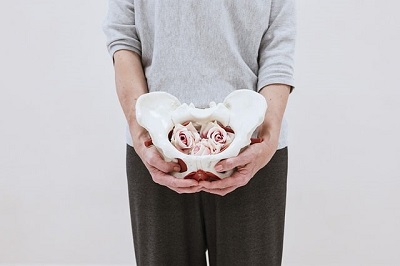Is Perineal Throbbing Pain Caused by Seminal Vesiculitis?
The perineum, the area located between the anus and the genitals, is crucial to male health. Perineal throbbing pain, a discomfort that strikes intermittently, often disrupts everyday life and brings significant physical and mental stress.

Seminal vesiculitis is a common inflammation of the male reproductive system, mainly caused by bacterial infection. The seminal vesicles are important organs for storing and transporting sperm, and when they are inflamed, their normal function is affected.
So, can seminal vesiculitis cause perineal throbbing pain?
The answer is that it is possible. The inflammatory response caused by seminal vesiculitis can lead to congestion, swelling, and pain in the seminal vesicles and surrounding tissues. Because the perineal area is close to the seminal vesicles, this pain may radiate or spread to the perineal region, causing perineal throbbing pain.
It is important to note that perineal throbbing pain is not necessarily caused solely by seminal vesiculitis. Many other factors may also contribute to this symptom.
For example, prostatitis is one of the common causes. The prostate is adjacent to the seminal vesicles. When prostatitis occurs, the inflammation may spread to the seminal vesicles, causing seminal vesiculitis and potentially leading to pain in the perineal area.
Urinary stones are another factor that cannot be ignored. When stones move within the urinary tract, they can irritate the mucous membrane, causing severe pain. This pain can sometimes radiate to the perineal area, resulting in perineal throbbing pain.
In addition, varicocele may also be the culprit. Obstructed venous return in the spermatic cord can lead to the expansion, tortuosity, and elongation of the pampiniform plexus of veins. In this case, it can cause a feeling of heaviness and pain in the scrotum, and sometimes, the pain may also affect the perineal area.
Moreover, some unhealthy lifestyle habits may indirectly cause perineal throbbing pain. Prolonged sitting and cycling can cause continuous pressure on the perineal area, affecting blood circulation and leading to pain.
Excessive sexual activity or frequent masturbation may cause the reproductive organs to remain congested for a long time, increasing the risk of inflammation and resulting in perineal throbbing pain.
How should the cause of perineal throbbing pain be determined?
For patients experiencing perineal pain, it is not sufficient to diagnose seminal vesiculitis based solely on this symptom. A detailed medical history is needed, including the pain's nature, occurrence frequency, aggravating or relieving factors, and accompanying symptoms. A comprehensive physical examination, including an assessment of the genitourinary and neurological systems, is also needed.
A series of auxiliary examinations, such as urinalysis, prostatic fluid analysis, semen analysis, and ultrasound examinations, may also be required to determine the cause. By integrating various pieces of information, the specific cause of perineal pain can be accurately judged, and targeted treatment can be provided.
Blindly attributing perineal pain to seminal vesiculitis may lead to the misdiagnosis of other diseases, delay treatment, and cause unnecessary suffering and health risks for the patient.
Antibiotics are usually used as an anti-infective treatment if perineal throbbing pain is caused by seminal vesiculitis or prostatitis. Antibiotics can act as bactericidal, anti-inflammatory, and anti-infective agents. However, antibiotics cannot quickly relieve the patient's pain and discomfort, so pain relief medication is needed.
The more medicines used, the greater the toxic side effects on the liver. Diuretic and Anti-inflammatory Pill can clear pathogenic bacteria, eliminate seminal vesiculitis infection, regulate qi, and relieve pain quickly, alleviating the patient's perineal discomfort.
Meanwhile, patients need to rest, avoid fatigue, and refrain from excessive sexual activity. For perineal throbbing pain caused by other reasons, the treatment methods will vary depending on the specific disease.
In conclusion, perineal throbbing pain may be caused by seminal vesiculitis, but there could also be many other reasons. There is no need to panic excessively when this symptom occurs, but it should not be taken lightly either.
Seeking medical attention promptly and receiving professional diagnosis and treatment is crucial for recovery. Also, maintaining good daily lifestyle habits is vital for preventing perineal throbbing pain and other reproductive system diseases.
You may also be interested in:
Seminal Vesiculitis: A Major Threat, But TCM Can Help



